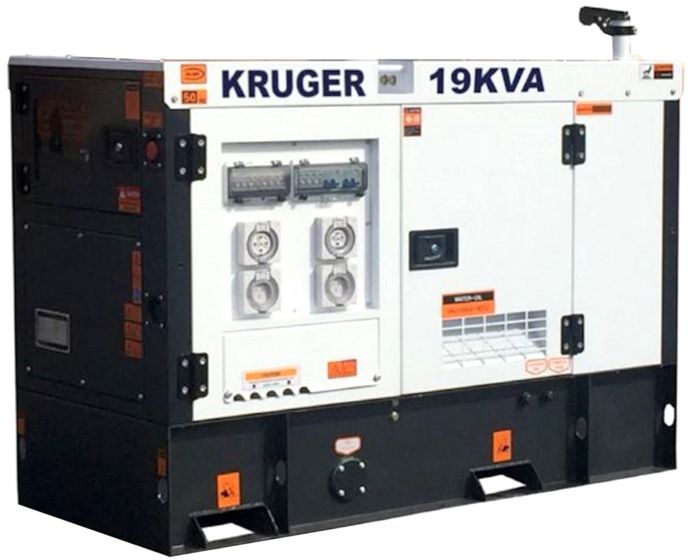A diesel generator is a combination of a combustion engine and an alternator. The purpose of the engine is to drive the alternator for producing electricity. The principle is fundamentally the same as that of a hydro-power project. However, instead of the water used for driving turbines, diesel is used to run an engine, which in turn fulfills the job.
That being said, diesel generators are not the only option available. Gen-sets using other fuel sources are also widely available. However, most of the other options are not suitable for industrial applications. And there are several reasons for diesel generators’ suitability for industrial purposes. Economical power backup is one of the most profound reasons, among all.
In this article, you shall find everything that you need to know about diesel generators. Please read more to know the types and possible applications in the industries.

What are the types of diesel generators?
Diesel generators can be fairly categorized on the basis of the type of engine, the size, and power delivery.
-
On the basis of the type of engine
As already mentioned, diesel generators primarily use an internal combustion engine for producing electricity. However, there are two different types of diesel engines, categorically- a two-stroke and a four-stroke engine. The primary difference in these two types of engines is the steps that the piston performs for completing one cycle. As the name suggests, a two-stroke engine takes two steps in completing one rotation of the crankshaft, whereas, a four-stroke engine takes four steps. Besides the number of steps, another difference is the fuel consumption. Four-stroke engines are known to be more economical as compared to a two-stroke diesel engine. The reason lies in the fact that two-stroke engines require more force to move the piston when compared with a four-stroke engine.
-
On the basis of size and power delivery
Apart from the type of engine, diesel generators also vary in size and power production. Notably, there are portable generators which usually produce somewhere between 3kVA to 6 kVA. Thus, they are smaller in size, making them unsuitable for industrial applications. On the other hand, there are large standby generators that can produce power ranging from 6kVA to several hundreds of kVA.
Since we are more concerned about the industrial diesel generators, we shall be discussing the applications for standby generators, henceforth.
Common Industrial Applications
The obvious use of a diesel generator for any industry is providing a backup power source. But, this is not the only purpose it serves. There are several industries that require a diesel generator regularly, irrespective of the availability of grid supply.
-
Construction Sites
Construction sites do not receive any regular grid supply. The constant need for electrical supply to operate several power tools and machinery calls for an alternative source of electricity. Thus, a diesel generator proves worthy of use at a construction site. Jackhammers, lifts, lights, and security systems, all require power and a diesel generator can fulfill all these requirements.
-
Aviation Industry
Another industry that widely uses a diesel generator is the aviation industry. Aircraft are usually parked inside huge constructions called hangers. These hangers are used for all sorts of purposes such as cleaning and repairing the aircraft. It is needless to say that cleaning and repairing tasks require an electrical supply to power lifts, water pumps, and also several other types of equipment. Moreover, drawing an extension line to the working site is not always a suitable option. Therefore, a diesel generator is brought in to solve this problem.
-
Civil Applications
Road construction is another such industry that relies on diesel generators for their power needs. Running air compressors, creating a makeshift site for preparing the asphalt and other materials, and providing light for the work are some of the common reasons why a diesel generator makes a suitable option for this industry.
Be it a small industry or a large manufacturing facility, the need for electricity cannot be overlooked. Continuous power supply to these industries ensure production and help mitigate any losses if the machinery comes to a halt, during a power outage. In fact, even the corporates where there are no manufacturing processes being carried out require a constant power supply. They make use of a diesel generator to supply power to the computers, the air conditioning system, as well as the communication system.
To sum it up, industries cannot spare any reason for not using a power backup system. However, they also need a backup to be economical. Thus, a diesel generator makes up for every need and offers an indisputable solution.